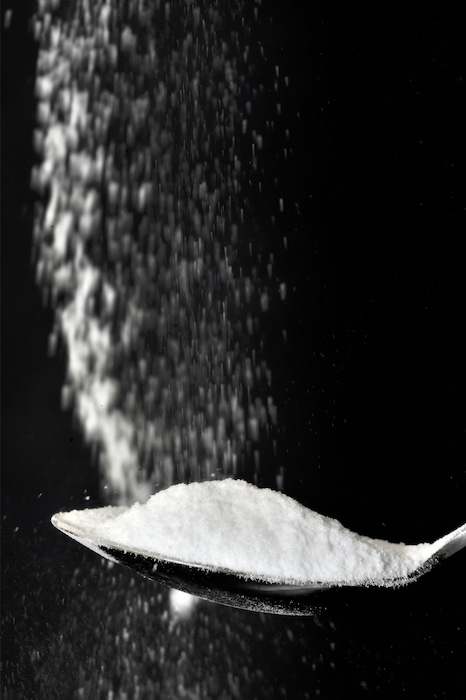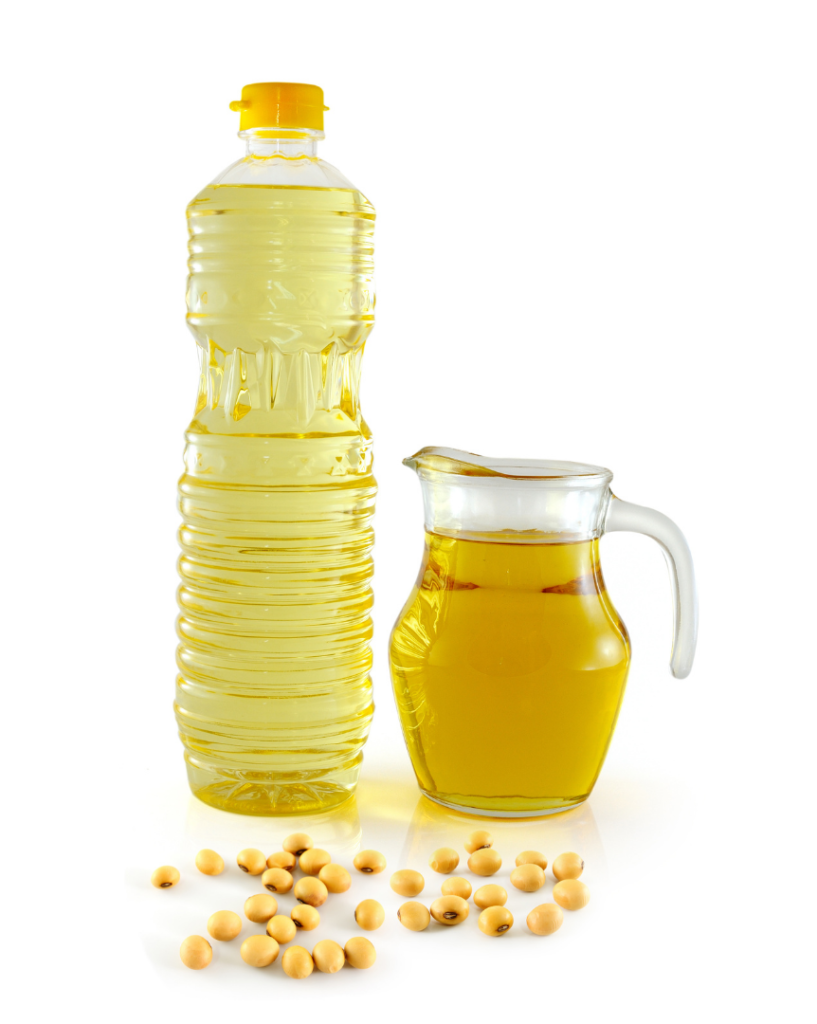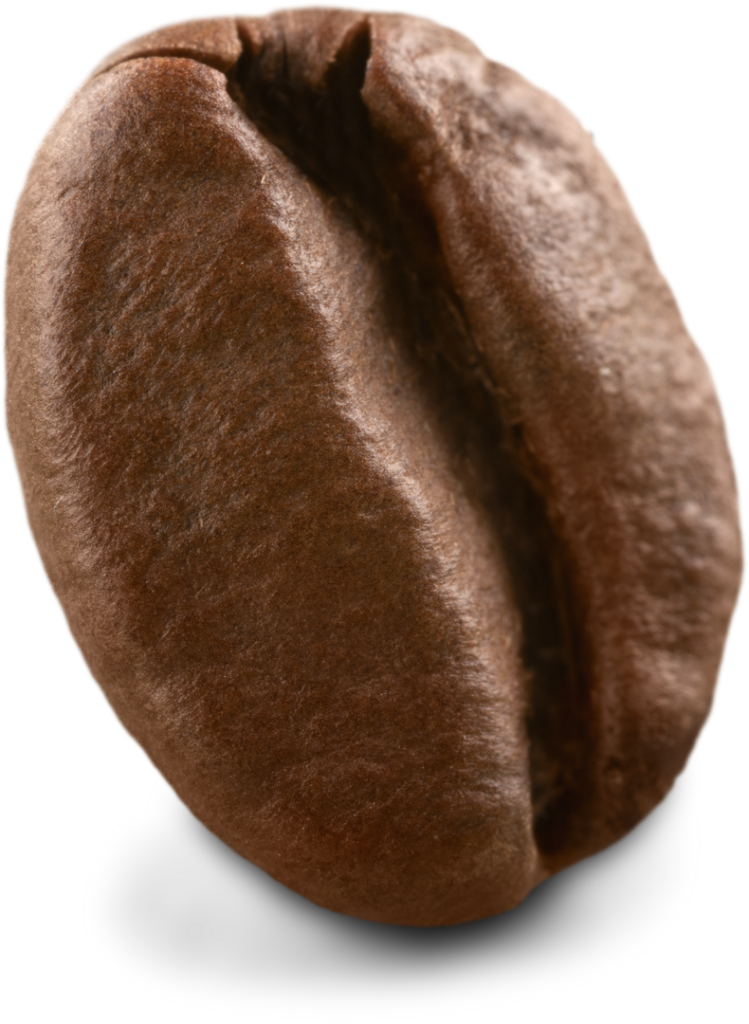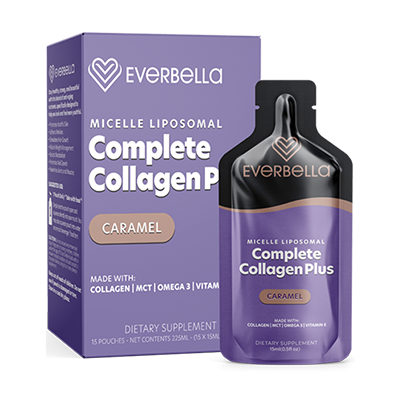You’ve probably heard that sugar is bad for your skin. But did you know it can actually destroy collagen?
Collagen is the protein that keeps your skin firm, your joints flexible, and your hair strong. Think of it as the scaffolding that holds everything together. But just like rust eats away at metal, certain foods and drinks can chip away at your collagen stores.
And sugar isn’t the only culprit. In fact, there are several everyday ingredients — hiding in snacks, drinks, and even “healthy” foods — that speed up collagen breakdown and make it harder for your body to replace it.
Here are six of the biggest offenders, and the science behind how they do their damage.

I’ll start with sugar.
When you eat too much sugar, it triggers something called glycation — a process where sugar molecules attach themselves to collagen fibers in your skin and connective tissue. This reaction makes those once-flexible fibers stiff, brittle, and far less capable of doing their job.
And this isn’t just a cosmetic concern. Glycation doesn’t only cause wrinkles — it can slow down your body’s ability to heal wounds, contribute to sagging skin, and even make your joints feel older and more achy than they actually are. Over time, the effects compound, leading to visible and structural signs of aging that are hard to reverse.
Research shows that glycation directly accelerates skin aging and collagen breakdown.
In fact, one study found that people with higher blood sugar levels showed significantly more skin aging signs — regardless of their actual age — because their collagen had become compromised. [1, 2]
Put simply: the more sugar you consume, the faster your collagen weakens. That’s why cutting back now can protect your skin’s firmness, your body’s mobility, and your youthful glow for years to come.
Even if you never sprinkle sugar on your food, eating processed carbs can have nearly the same collagen-damaging effect. That’s because refined carbohydrates — like white bread, pasta, pastries, crackers, and many breakfast cereals — are broken down into glucose so quickly that your body experiences a sharp spike in blood sugar.
This rapid rise in glucose fuels glycation, doing the exact same thing that just plain sugar does to your skin: making your collagen stiff and brittle. Over time, that damage leads to more wrinkles, less skin elasticity, and slower tissue repair.
To make matters worse, these refined foods are stripped of antioxidants, healthy fats, and protein — nutrients your body needs to protect and rebuild collagen. Without them, you’re not only accelerating collagen breakdown but also depriving your body of the tools to fix the damage. It’s a one-two punch that can age your skin faster and impact your joint and bone health too.

These oils are loaded with omega-6 fatty acids. While your body does require some omega-6 for proper function, too much can throw your fatty acid balance out of whack and spark a cascade of inflammation throughout your body — and inflammation is one of the most destructive forces against collagen. It breaks down existing collagen fibers, slows your body’s ability to produce new ones, and even interferes with the enzymes that help keep your skin smooth and firm.
A 2020 study found that diets high in omega-6 fatty acids didn’t just increase overall inflammation — they actually sped up visible signs of skin aging and triggered a faster loss of collagen in skin tissue. [3]
Over time, this can lead to more wrinkles, sagging, and a loss of skin elasticity, making you look older than you really are.
Alcohol dehydrates the skin, disrupts nutrient absorption, and fuels inflammation — all of which accelerate collagen breakdown.
When you drink, your body loses water, which leaves skin cells less plump and elastic. It also interferes with your ability to absorb vitamin C, one of the most essential nutrients for collagen production and repair. Without enough vitamin C, your body can’t efficiently create strong, healthy collagen fibers.
In addition, alcohol increases oxidative stress and chronic inflammation, both of which weaken the structural proteins in your skin over time.
This combination of dehydration, nutrient depletion, and inflammation gradually leads to thinner, weaker collagen fibers and slows the skin’s natural repair process — making fine lines and sagging appear sooner.
One study found that alcohol damages fibroblasts as well — the specialized cells responsible for producing collagen. When fibroblasts are impaired, collagen production slows dramatically, and the collagen that is formed tends to be less organized and more fragile. [4]
Over time, this damages compounds, resulting in skin that is less firm, less resilient, and more prone to premature aging.

Moderate coffee consumption is perfectly fine — and in fact, coffee is packed with antioxidants that can help combat free radicals, which is good news for your skin.
However, when caffeine intake climbs too high, it can start to work against you. Excessive caffeine has a mild diuretic effect, which can lead to dehydration in your skin cells. This lack of hydration can make skin look dull, less plump, and more prone to fine lines.
On top of that, research suggests that too much caffeine may interfere with your body’s ability to produce collagen — especially if your diet and hydration levels aren’t providing the right balance of vitamins, minerals, and water to support collagen synthesis. [5]
Without these key nutrients, your skin’s natural repair and renewal processes can slow down, leaving you more vulnerable to signs of aging.
The bottom line: enjoy your daily cup (or two), but make sure you’re countering it with plenty of water and a nutrient-rich diet to keep your collagen production running smoothly.
They may be sugar-free, but artificial sweeteners can throw your gut health out of balance — and your gut is one of the most important systems for keeping collagen production strong.
A healthy gut microbiome helps regulate inflammation, ensures your body can break down food effectively, and maximizes the absorption of collagen-building nutrients like vitamin C, zinc, and amino acids.
When artificial sweeteners disrupt that delicate gut environment, it can lead to inflammation and nutrient absorption problems.
Over time, this means your body has fewer of the raw materials it needs to repair and produce collagen, leaving your skin, joints, and connective tissues more vulnerable to the effects of aging. Even if you’re getting enough collagen in your diet, your body may not be able to fully use it if your gut health is compromised.

You can’t avoid every collagen-damaging food, but you can replenish your collagen daily to help stay ahead of the damage.
That’s where Complete Collagen Plus comes in.
➡️ Sugar-free and gut-friendly
➡️ Delivered via micelle liposomal technology for up to 800% better absorption
➡️ Includes collagen peptides plus MCTs, omega-3s, and vitamin E to support skin, hair, nail, and joint health
Think of it as your “daily armor” against collagen loss.